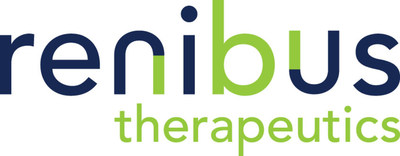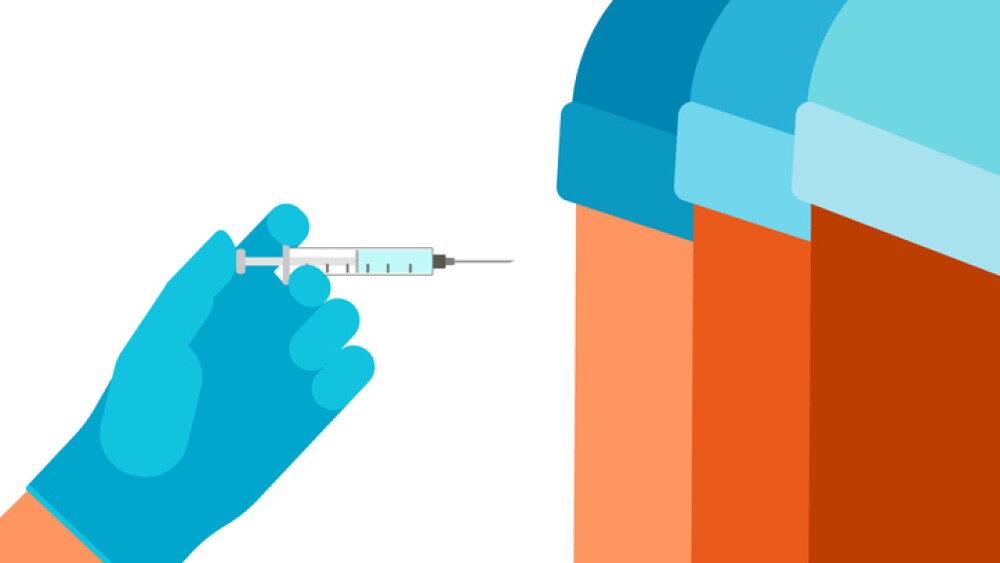Renibus Therapeutics® today announced publication in E-Clinical Medicine, part of The Lancet Discovery Science, of results from the Phase 2 study evaluating RBT-1, the Company’s first-in-a-new-class preconditioning agent, under investigation to reduce post-operative complications following cardiothoracic surgery.
|
RBT-1 as a preconditioning agent has the potential to provide patient benefits in multiple surgical settings where organ injury during surgery increases the risk of post-operative complications Phase 3 PROTECT study ongoing, top line data anticipated Q3 2025 SOUTHLAKE, Texas, Jan. 9, 2024 /PRNewswire/ -- Renibus Therapeutics® ("Renibus"), a clinical-stage biopharmaceutical company focusing on the prevention and treatment of cardio, renal and metabolic diseases, today announced publication in E-Clinical Medicine, part of The Lancet Discovery Science, of results from the Phase 2 study evaluating RBT-1, the Company's first-in-a-new-class preconditioning agent, under investigation to reduce post-operative complications following cardiothoracic surgery. "The publication of our Phase 2 manuscript provides validation of the importance of RBT-1 as a novel pre-conditioning agent in the cardiothoracic surgery field, as well as a powerful way to reach the key surgeons and providers as we continue through Phase 3 and prepare for commercialization," said Frank Stonebanks, Co-CEO of Renibus. "We believe that RBT-1 has broad "pipeline-in-a-product" potential, and we look forward to bringing our product to patients in need." RBT-1 (stannic protoporfin/iron sucrose), a fixed dose combination product given once intravenously over 1-2 hours, 24-48 hours before surgery, is a potent inducer of anti-inflammatory, antioxidant and iron-scavenging pathways. In a completed Phase 2 study, RBT-1 demonstrated statistically significant positive data in primary and several clinical endpoints, including reduced time in the ICU, shortened patient recovery time and fewer hospital readmissions. "Having our data showcased in one of the world's most prestigious medical journals underscores the potential of RBT-1's mechanism of action to revolutionize the treatment paradigm for patients undergoing cardiothoracic surgery," added Bhupinder Singh, Chief Medical Officer of Renibus. "For the first time in history, a potential new treatment option presents the possibility of reducing complications from cardiothoracic surgery – such as time in the ICU, time on a ventilator and 30-day cardiopulmonary readmission rates, while reducing the economic burden on the healthcare system." The Phase 2 study of RBT-1 was a multicenter, double-blind, placebo controlled, Phase 2 clinical trial in patients undergoing coronary artery bypass graft (CABG) and/or cardiac valve surgery on cardiopulmonary bypass (CPB). The trial enrolled 152 patients from cardiac surgery centers in the US, Canada and Australia, 132 patients were evaluable for the primary endpoint (ITT population) and 121 were evaluable for clinical outcomes (mITT population), as pre-specified in the statistical analysis plan. The published manuscript, titled "Effects of RBT-1 on preconditioning response biomarkers in patients undergoing coronary artery bypass graft or heart valve surgery: a multicentre, double-blind, randomised, placebo-controlled phase 2 trial", is available online and will appear in the print issue of The Lancet at a later date. About RBT-1 and the PROTECT Phase 3 Study Renibus' first-in-a-new-class lead program, RBT-1 (stannic protoporfin/iron sucrose), is a single dose IV drug that is given over 1-2 hours, 24-48 hours prior to patients undergoing elective cardiac and or valve surgery. RBT-1 has started its Phase 3 US registrational study [NCT # 06021457] to reduce the risk of post operative complications and improve outcomes following cardiothoracic surgery. The drug has received FDA Breakthrough and Fast Track Designations. PROTECT is a Phase 3, Randomized, Double-Blind, Placebo-Controlled Study to Evaluate the Effect of RBT-1 on Reducing the Risk of Post-Operative Complications in Subjects Undergoing Cardiac Surgery. The study is a randomized, double-blind, multi-center, placebo-controlled trial evaluating the effect of RBT-1 in approximately 400 patients. The primary endpoint is a severity-based composite hierarchy using the Win-Ratio or Finkelstein-Schoenfeld Method that includes the following: death, AKI requiring dialysis, ICU days, and 30-day cardiopulmonary readmission rates. Secondary and exploratory objectives include time on the ventilator, need for blood products, new onset atrial fibrillation, delirium, hospital length of stay, cost effective analyses and safety. Top line results are expected mid-2025. About Renibus Therapeutics Renibus is a clinical stage biopharmaceutical company dedicated to treating, improving, and extending patients' lives by developing products to prevent disease progression, improve outcomes and protect against organ damage associated with cardio, renal and metabolic diseases. Renibus' first-in-a-new class lead program is RBT-1 (stannic protoporfin / iron sucrose), a single dose IV drug that is given over 1-2 hours, 24-48 hours prior to patients undergoing elective cardiac and/or valve surgery. It is in a Phase 3 pivotal trial to reduce the risk of post operative complications and improve outcomes following cardiothoracic surgery. The drug has received FDA Breakthrough and Fast Track Designations. Veverimer (Alezuris™) is an oral, non-absorbed hydrochloric acid binder that was acquired from Tricida. We are currently evaluating veverimer in preclinical models and analyzing historical data to further our understanding of its clinical profile with a goal of identifying an indication for evaluation in a Phase 2 trial. RBT-3 (iron sucrose), one component of RBT-1, is a novel, low molecular weight iron nanoparticle that has the potential to rapidly restore iron levels and improve blood product utilization in cardiac surgery and/or ER patients. RBT-3 has also demonstrated the potential to mitigate cisplatin induced nephrotoxicity in preclinical models. We are currently exploring opportunities to further the clinical development of RBT-3 in these potential indications. RBT-9 (stannic protoporfin), another component of RBT-1, is a potent anti-inflammatory and antioxidant drug. It has completed Phase 1 (as part of the RBT-1 program) and has been investigated in a 42-patient Phase 2, randomized, placebo-controlled trial in high-risk patients with COVID-19. The data from this trial indicated that RBT-9 has the potential to significantly improve clinical outcomes. Additional work is underway to help inform the future clinical development strategy. RBT-2 (tetrahydrocurcumin) is an oral antioxidant and antifibrotic drug that is in IND enabling studies targeting delaying CKD progression. For more information, please visit the Company's website at www.Renibus.com and engage with us on LinkedIn. Investor and Media Contact: Amy Conrad Business Development Contact Frank Stonebanks
SOURCE Renibus Therapeutics |





